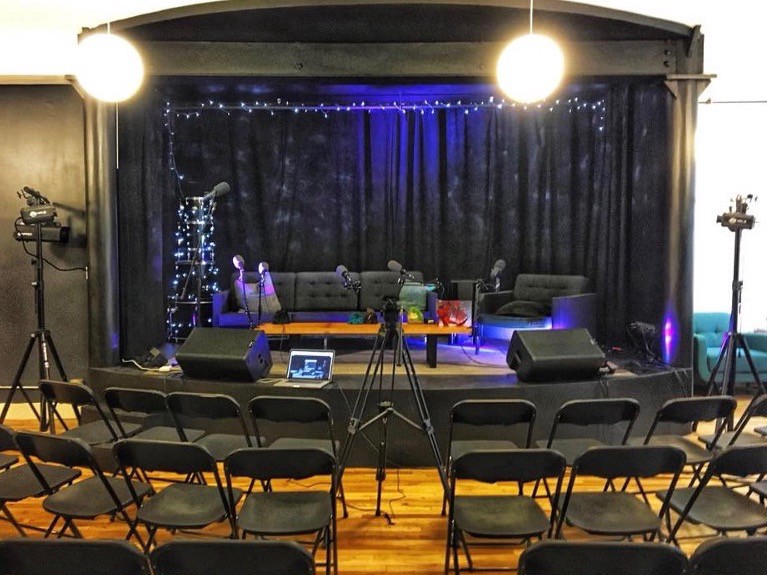In 2015 I went to my first live podcast. It was unlike anything I had experienced before, because the words “live podcast” could mean anything. Podcasts are a relatively individualized medium, people listen in their cars, through headphones, or at work. Listeners very rarely think about other listeners, because the podcast format has an incredibly personal feel. When I went to The Fighter & The Kid Live Podcast, it was my first time seeing hundreds of people who were fans of the same thing as me. It turned what was otherwise an individual experience into a communal experience.
The show I saw featured stand-up spots from both hosts, audience participation, and the premiere of some video sketches hosts Brendan Schaub and Bryan Callen made. Aside from all of that, they conversed for 45 minutes in the same tone their podcast typically takes on. It was a great show and from then on, I was sold on the “live podcast” idea.
What is a live podcast
As is expected in the podcast world, there is no concrete definition of a live podcast. The podcast medium is so fluid, that a live show completely depends on the structure of your show and the personality of the host. A live podcast experience could feature stand-up, video packages, musical performances, skits, live reads and much more!
The biggest difficulty that podcasters face in this arena is conceptualizing their live show. If your podcast format is formatted like a radio show, you could perform your radio show live on stage, simple as that. However, if you have a more complex theme or format it’s going to be a much taller order. It’s also important to remember that you have to deliver a fun night out, your podcast should bring your podcast to life.
The Radiolab podcast has a unique live experience. The hosts of the show take the stage, get familiar with the crowd then launch into a script that is accompanied my visuals and sounds orchestrated on a soundboard, by the host. These shows involve audience participation, multiple guests, and ultimately tell a story. This show can be repeated throughout several cities to several audiences.
Why do a live podcast?
Far too often in 2019 we forget about the value of face to face interaction. It’s easy to believe the digital world is the real world, especially when your entire production lives online and is managed online. Live shows are a marketing opportunity, a chance to make money and sell merch, it’s a great way to expand your skill set as a performer, and it builds fandom.
Podcast hosts feel subtly more distant than other performers. If a host is not a household name, their listeners likely have never seen them before. Introduce yourself to your fans by any means necessary. If you don’t have the draw or ability to put on a live show, join local events and meet people that way. After all, a podcast is a brand, your brand is in competition with every other brand. Bringing your brand to life can change how people see you.

 Our TOPPODCAST Picks
Our TOPPODCAST Picks  Stay Connected
Stay Connected